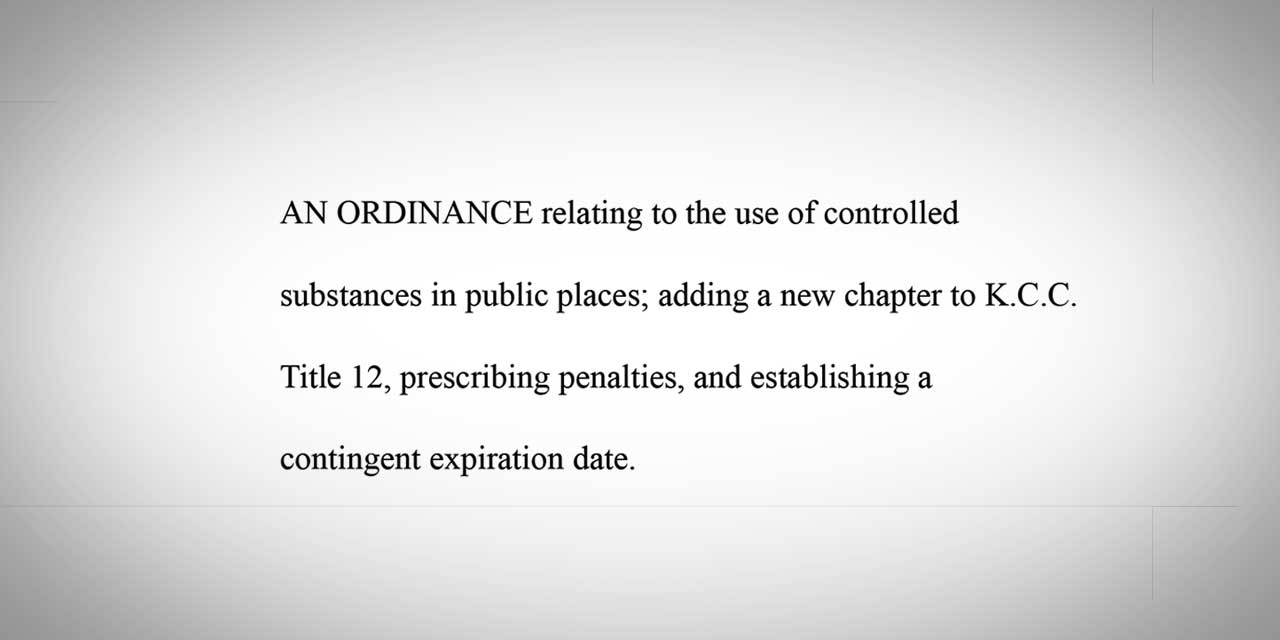King County Council Vice Chair Reagan Dunn on Wednesday, April 26, 2023 introduced an ordinance that would make public drug use a misdemeanor in King County.
“Enabling open air drug use in our communities hurts everyone — not only our children and law-abiding citizens, but the drug users themselves who are, tragically, dying in droves from overdoses,” Dunn said. “King County must act immediately to protect the safety of our communities by making the consumption of dangerous drugs in public an arrestable offense.”
Dunn’s proposal follows the Washington State Legislature’s failure to provide a permanent state level drug possession law in the wake of the Supreme Court’s State v. Blake decision. Local jurisdictions have until July 1, 2023, to pass their own ordinance penalizing drug possession before the stopgap state possession law expires. After July 1, there will be no state law prohibiting individual possession of drugs — including fentanyl, methamphetamines, and heroin — at any location, including sidewalks, bus stops, parks, and playgrounds.
In King County, overdose deaths have nearly doubled since 2020, largely driven by the spread of fentanyl. 690 people died from a fentanyl overdose in 2022, which is a shocking 551% increase since 2019. 2023 is on track to be an even worse year for overdose deaths; in 2022, an average of 1.95 people died of fentanyl overdoses each day, and so far in 2023, the average is 2.7 deaths per day.
Under Dunn’s proposed ordinance, it would be unlawful to knowingly use a controlled substance in public places, including streets, alleys, parks, cars, and public buildings in unincorporated King County.
Dunn also sent a joint letter with Pierce County Councilmember Dave Morell, and Snohomish County Councilmember Nate Nehring to the Washington State Association of Counties today encouraging a more aggressive approach in dealing with the state Legislature’s inaction, including providing model legislation that cities and counties can adopt to make public drug use illegal in their respective jurisdictions.
Dunn’s legislation will be heard in the Law, Justice, Health and Human Services Committee at a later date.


Recent Comments